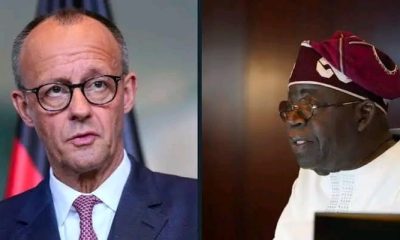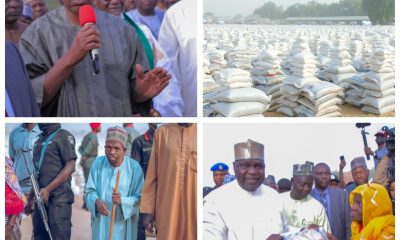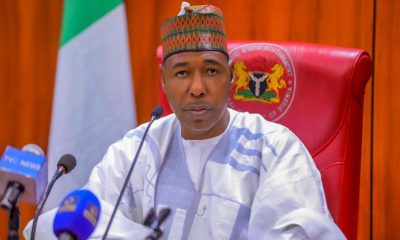National
Nigeria on the brink: A generation lost to desperation (Opinion), by Preye Tambou

20th January,2024
The rising trend of kidnapping, ritual killings, Yahoo-Yahoo crimes, cultist fraternity, and Ogboni activities in Nigeria is alarming, and it is heartbreaking to see our youths resort to such destructive paths. As the National President of the Society for the Welfare of Unemployed Youths of Nigeria (SWUYN), I strongly believe that these vices are symptoms of a larger problem – poverty, unemployment, and a lack of opportunities for young Nigerians.
The current economic situation in Nigeria, exacerbated by the hardship, hunger and poverty prevalent under the present administration of President Bola Tinubu, has created a fertile ground for these social ills to thrive. The policies of this administration, including the removal of fuel subsidies and the liberalization of the exchange rate, have led to increased inflation, poverty, hunger, and frustration among Nigerians.
Recent instances of ritual killings and related crimes are a stark reminder of the desperation and hopelessness that many young Nigerians feel. Some of these instances include:
– The gruesome murder of a 300-level student of the University of Jos, Naomi Iwene Tsortsea, who was allegedly killed for ritual purposes in January 2023.
– The arrest of a suspected Yahoo-Yahoo kingpin in Abuja, who confessed to using human parts for rituals to make money.
– The discovery of a ritualists’ den in Ibadan, Oyo State, where several human skulls and bones were found.
– The ritual killing of a 35-year-old woman, Sulaimon Aishat, in Ogun State, where seven individuals were paraded by the police in February 2024.
– The arrest of an 18-year-old, Samuel Akpobome, in Edo State, for allegedly killing his mother for money rituals in January 2025.
– The arrest of twin brothers, Taiwo and Kehinde Yemitan, in Abeokuta, Ogun State, for luring and killing a young girl for ritual purposes in January 2025.
– The kidnapping and murder of a 19-year-old university student, Abigail Damilola, by Jeremiah Paul, who demanded a N400,000 ransom from her family.
– The brutal murder of Salome by alleged gospel singer, Timileyin.
– The beheading of Paulinus, the owner of Easy Boutique in Otokutu, near Warri, by Efe Money, Okiemute, and the Chief Priest, who then buried his head in the community shrine and disposed of his body in a nearby river. The perpetrators demanded a ₦12million ransom from Paulinus’ family, who paid unaware of the horrific truth. Just to mention a few.
Despicably, the rise of cultist fraternity and Ogboni activities has added another layer of complexity to the crisis. These groups, often shrouded in secrecy, have been linked to various forms of violence, intimidation, and exploitation. Their activities have created a culture of fear and silence, making it difficult for victims to speak out and seek help.
These incidents, amongst others, have brought to the fore the alarming rate of ritual killings, kidnappings, and other related crimes in Nigeria due to unemployment. The society’s emphasis on wealth and materialism has led to a situation where some individuals are willing to do whatever it takes to get rich quickly, including resorting to ritual killings.
As SWUYN, we condemn these evil trends and hold the Federal Government, State Governments and their agencies responsible for their failure to provide for the welfare and security of citizens. We hold all leaders, including the National and State Assemblies, responsible for these trends due to their bad policies, corruption, greed, and inability to perform. Their failure to partner with private organizations like SWUYN to cushion the situations has exacerbated the crisis. The lack of effective policies and programmes to address poverty, unemployment, and inequality has created a situation where our youths are vulnerable to manipulation by criminal elements.
We demand that the government takes immediate action to address these challenges. We call for:
1. Effective policies and programmes to address poverty, unemployment, and inequality.
2. Increased investment in education and skills development.
3. Job creation and economic empowerment programmes for young Nigerians.
4. A comprehensive review of our economic policies to ensure they are inclusive and equitable.
5. Partnerships with private organizations to provide support and resources for young people.
We urge all stakeholders, including civil society organizations, private sector players, and community leaders, to join forces in finding solutions to these challenges.
Together, we can build a brighter future for our youths, one that’s filled with hope, opportunities, and a sense of purpose.













